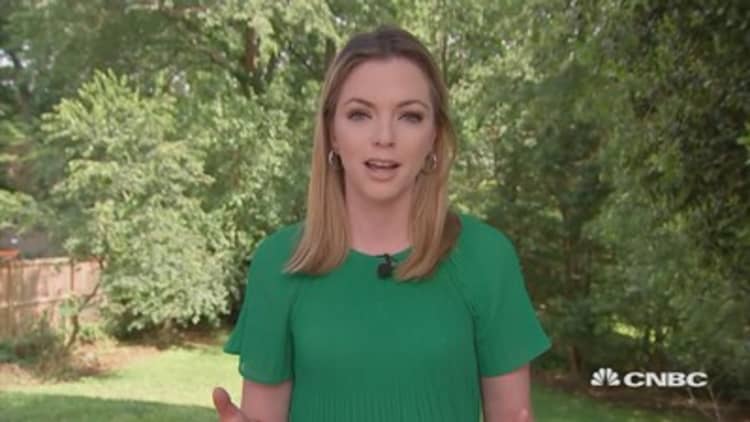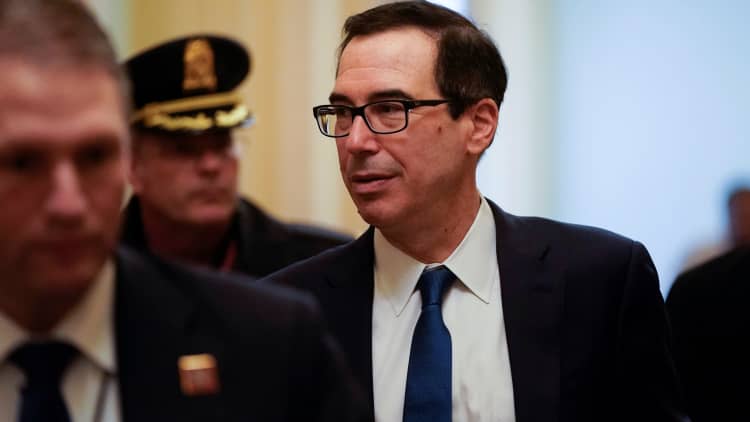
White House and Republican negotiators are not planning to hold formal negotiations on a fourth coronavirus stimulus package until late July, when Congress returns from recess, according to two senior administration officials and two senior GOP aides.
The Senate and House of Representatives are scheduled to return to Washington on July 21, after two weeks working and campaigning in their home districts, and 10 days before certain critical programs under the CARES Act, like increased unemployment insurance payments, are set to expire.
GOP lawmakers and the administration are now armed with encouraging data on unemployment and calculations showing that much of previous stimulus money remains unspent.
In May, businesses hired or rehired 2.5 million workers, mostly in the hospitality and construction industries. At a hearing Wednesday to discuss the program allowing small businesses to take out forgivable loans, Treasury Secretary Steven Mnuchin said that program – and others – had created successful incentives for companies to retain workers, but the White House wanted to allow more stimulus funds to be spent before negotiating new aid.
"We want to be careful at this point, seeing how much money is in the economy," Mnuchin testified to the Senate committee on Small Business. "A lot of the money is still not in it."

The Trump administration is estimating that more than half of funds from the last three stimulus packages remains "unobligated," or not yet spent, according to three sources briefed on calculations conducted by the Office of Management and Budget.
CNBC obtained a detailed breakdown provided by OMB to lawmakers that shows less than a third of the money allocated to pay for expanded unemployment insurance, hospital reimbursements, and FEMA disaster relief loans had been disbursed. It shows just $22 billion of $500 billion earmarked to the Treasury Department for business loans having been spent, though that number will rise in the coming days when the Federal Reserve begins generating business loans under its Main Street Loan Facility.
On Wednesday, Federal Reserve Chair Jay Powell said that more stimulus would likely be needed to restore an economy that may see elevated unemployment for several years. Powell said the central bank would not change course based on a single data point.
"The labor market may have hit bottom in May," Powell said at a press conference. "We're going to be here with our tools supporting this economy for as long as it's needed."
White House and Republican leaders have yet to craft a united position on what programs should be included in a future stimulus bill. In meetings, the common thread among participants was a desire to provide liability protection to businesses that decide to open.
When Senate Majority Leader Mitch McConnell, at a later meeting, suggested the next stimulus package should not go above $1 trillion, the response from the White House was "divided," according to a second senior administration official. House Democrats, meanwhile, passed a $3 trillion package in mid May.
White House chief of staff Mark Meadows and top economic advisor Larry Kudlow were among the fiscal conservatives said to be against additional handouts, but two senior administration officials told CNBC in mid-May that, in the end, if additional stimulus checks were needed, the president would authorize them.
Judd Deere, White House deputy press secretary, told CNBC at the time:
"As President Trump has said, we are going to ensure that we take care of all Americans so that we emerge from this challenge healthy, stronger, and with economic prosperity, which is why the White House is focused on pro-growth, middle class tax and regulatory relief. The President's bold policies of low taxes, deregulation, reciprocal trade, and energy independence took this economy to record setting historic highs once, and they will do so again."

